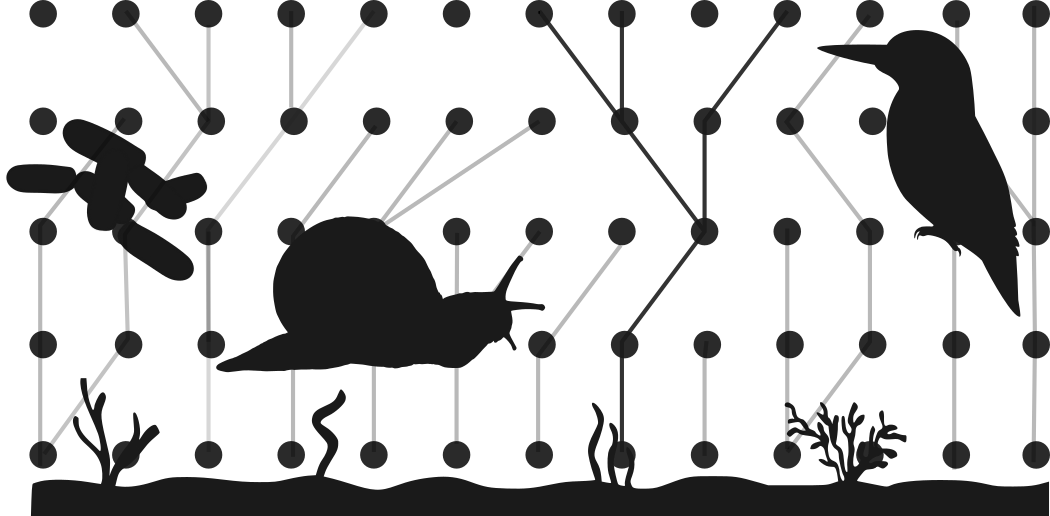ForBio and UiO:Life Science jointly offer a generator workshop on model-based demographic inferences of both single species and communities. The workshop aims to learn and apply new tools to elucidate phylogeographic patterns, biogeographic shifts and demographic responses of single- and multi-taxa as well as to contribute to knowledge exchange on methodological challenges and diverse biological systems for this cutting-edge field of research.
Content
After introducing statistical approaches in model-based inferences, participants will apply pipelines for single-species demographic inferences using Approximate Bayesian Computation, Supervised Machine Learning and composite likelihood methods for model comparison using the ABLE package authored by C. Beeravolu Reddy and the PipeMaster r-package authored by M. Gehara. Then, the workshop will cover multi-taxa demographic inferences using hierarchical models in the R packages multi-DICE and PipeMaster authored by A. Xue and M. Gehara respectively.
Finally, novel community population genetic models which integrates both abundances, the phylogeny and comparative phylogeographic data will be introduced. These methods which capitalize on the widespread use of DNA barcoding and meta-barcoding approaches will be implemented in the pipelines CAMI and gimmeSAD/MESS designed by Megan Ruffley and Isaac Overcast.
Participants will work on sample datasets but are also encouraged to bring their own data. Advantages and limitations of each method and the fit to participant’s datasets, field sampling design as well as the selection and use of genetic markers will be actively discussed. In addition, to strengthen connections and exchanges between researchers, participants will have the opportunity to present their work in the evenings.
Recommended background
General knowledge in evolutionary biology, population genetic and phylogenetic analyses. Basic knowledge in R. bash/Linux and python scripting/commands is useful.
Instructors
- Michael Hickerson (City college of New York)
- Isaac Overcast (github) (City college of New York)
- Megan Ruffley (github) (University of Idaho)
- Champak Beeravolu Reddy (github) (University of Fribourg)
- Alexander Xue (xanderxue.com) (Cold Spring Harbor Laboratory)
- Marcelo Gehara (marcelogehara.org) (American Museum of Natural History)
Coordinators
- Hugo de Boer (University of Oslo and ForBio)
- Marie Leys (University of Oslo)
Participants
Maximum number of participants is 16.
Fee
No course fee.
Travel, food and accommodation
Shared accommodation is free of charge. Food is included, and the station has cooking facilities and participants will prepare food together in shifts. In addition, ForBio will cover travel for Norwegian ForBio members.
Registration
Register in the submission form (nettskjema) with a short CV and indicate the nature and stage of your interest or research project(s). Registration deadline is May 1st, 2019. We will select those of you whom are most likely to benefit from this course, should the maximum number of participants be exceeded. Contact Marie Leys for more information about the workshop.
